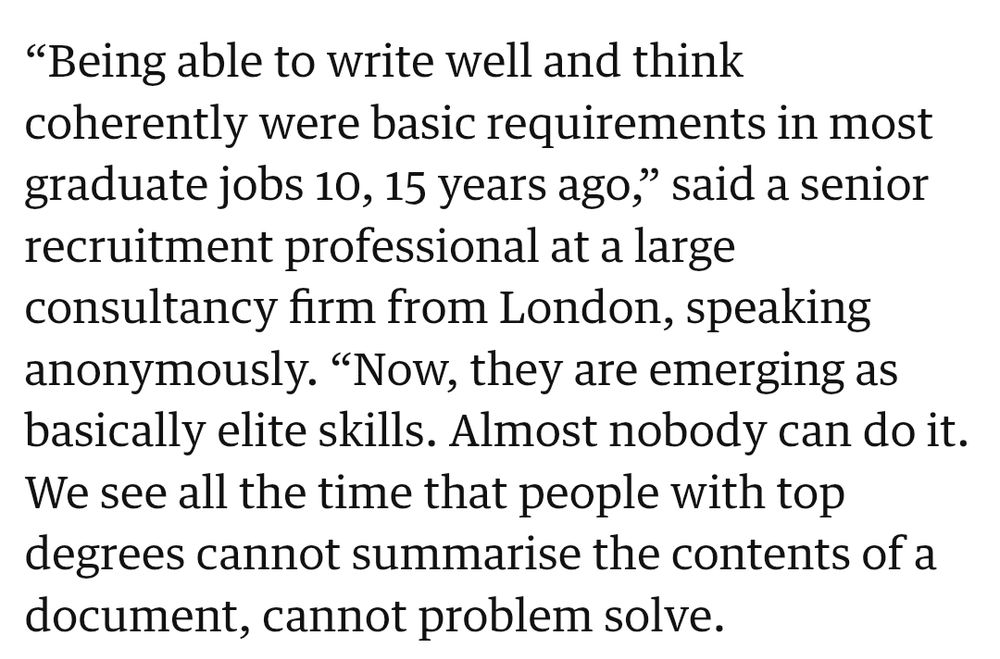Fabio Ferraz de Almeida
@fferrazdealmeida.bsky.social
350 followers
140 following
19 posts
Lecturer in Criminology, University of Lincoln | social interaction in police and judicial settings 🧑⚖️💬👮♀️| ⚽️🏐🏀🇧🇷views are my own
Posts
Media
Videos
Starter Packs
Reposted by Fabio Ferraz de Almeida
Reposted by Fabio Ferraz de Almeida
Reposted by Fabio Ferraz de Almeida
Reposted by Fabio Ferraz de Almeida
vexorian
@vexorian.dev
· 21d
The Guardian
@theguardian.com
· 27d

Brazil’s supreme court finds Bolsonaro guilty of plotting military coup
Former president faces decades-long jail sentence for seeking to forcibly cling to power after losing 2022 election
*
Anatomy of a coup plot: why Jair Bolsonaro is on trial
A majority of Brazil’s supreme court judges have voted to convict the country’s former president Jair Bolsonaro of plotting a military coup, leaving the far-right populist facing a decades-long sentence for leading the criminal conspiracy.
Justice Cármen Lúcia Antunes Rocha ruled on Thursday that Bolsonaro – a former paratrooper who was elected president in 2018 – was guilty of seeking to forcibly cling to power after losing the 2022 election, meaning three of the five judges involved in the trial had found Brazil’s former leader guilty. Continue reading...
www.theguardian.com
Reposted by Fabio Ferraz de Almeida
Reposted by Fabio Ferraz de Almeida
Reposted by Fabio Ferraz de Almeida
Robert Dingwall
@rwjdingwall.bsky.social
· Aug 19

The OfS must spearhead a dilution of the UK’s lavish student experience
If the UK has decided it can no longer afford the sub-Oxbridge university model, expectations need to be systematically lowered, says Robert Dingwall
www.timeshighereducation.com
Reposted by Fabio Ferraz de Almeida
Reposted by Fabio Ferraz de Almeida
Dr Kathleen Neal
@kbneal.bsky.social
· Jun 20
Reposted by Fabio Ferraz de Almeida
Reposted by Fabio Ferraz de Almeida
Reposted by Fabio Ferraz de Almeida
Reposted by Fabio Ferraz de Almeida













![Preamble
All research at our institution, from ideation and execution to analysis and reporting, is bound by the Netherlands Code of Conduct for Research Integrity. This code specifies five core values that organise and inform research conduct: Honesty, Scrupulousness, Transparency, Independence and Responsibility.
One way to summarise the guidelines in this document is to say they are about taking these core values seriously. When it comes to using Generative AI in or for research, the question is if and how this can be done honestly, scrupulously, transparently, independently, and responsibly.
A key ethical challenge is that most current Generative AI undermines these values by design [3–5; details below]. Input data is legally questionable; output reproduces biases and erases authorship; fine-tuning involves exploitation; access is gated; versioning is opaque; and use taxes the environment.
While most of these issues apply across societal spheres, there is something especially pernicious about text generators in academia, where writing is not merely an output format but a means of thinking, crediting, arguing, and structuring thoughts. Hollowing out these skills carries foundational risks.
A common argument for Generative AI is a promise of higher productivity [5]. Yet productivity does not equal insight, and when kept unchecked it may hinder innovation and creativity [6, 7]. We do not need more papers, faster; we rather need more thoughtful, deep work, also known as slow science [8–10].
For these reasons, the first principle when it comes to Generative AI is to not use it unless you can do so honestly, scrupulously, transparently, independently and responsibly. The ubiquity of tools like ChatGPT is no reason to skimp on standards of research integrity; if anything, it requires more vigilance.](https://cdn.bsky.app/img/feed_thumbnail/plain/did:plc:tfyqeo3tprov5lejatxoi6lb/bafkreidtloh77ocmijnfeddey4fmme43s2mhahdpmr7otrrmvpzjca5kn4@jpeg)
